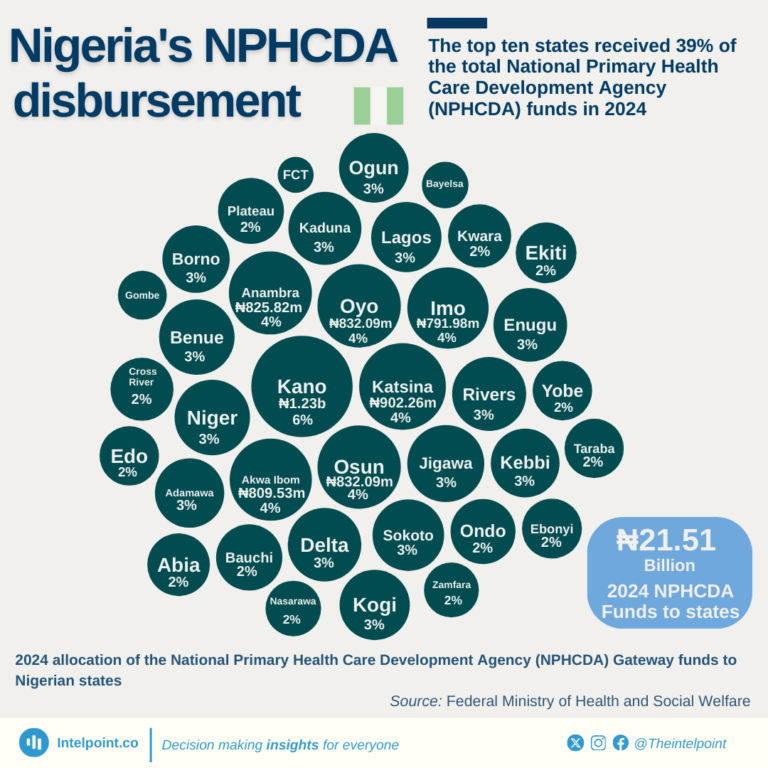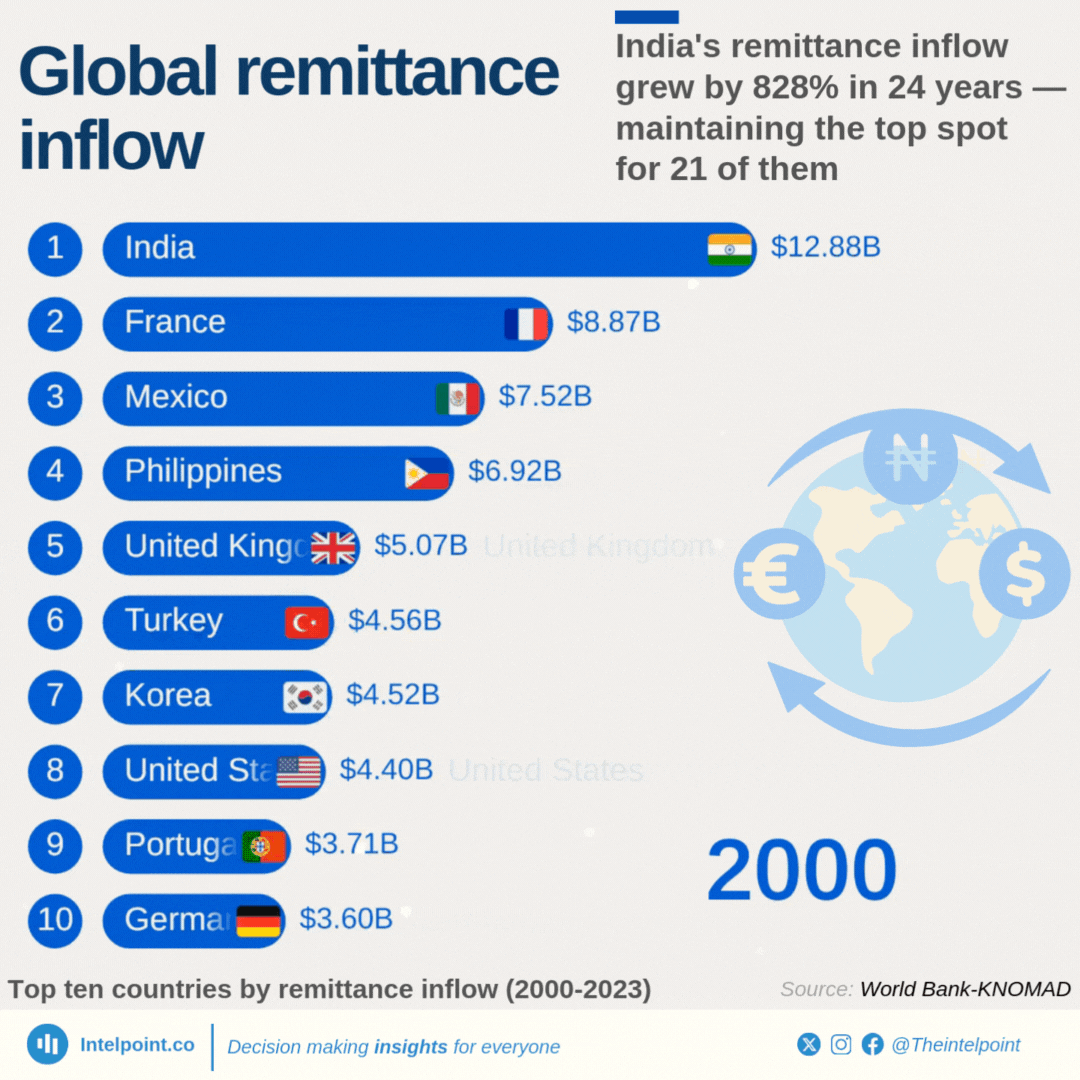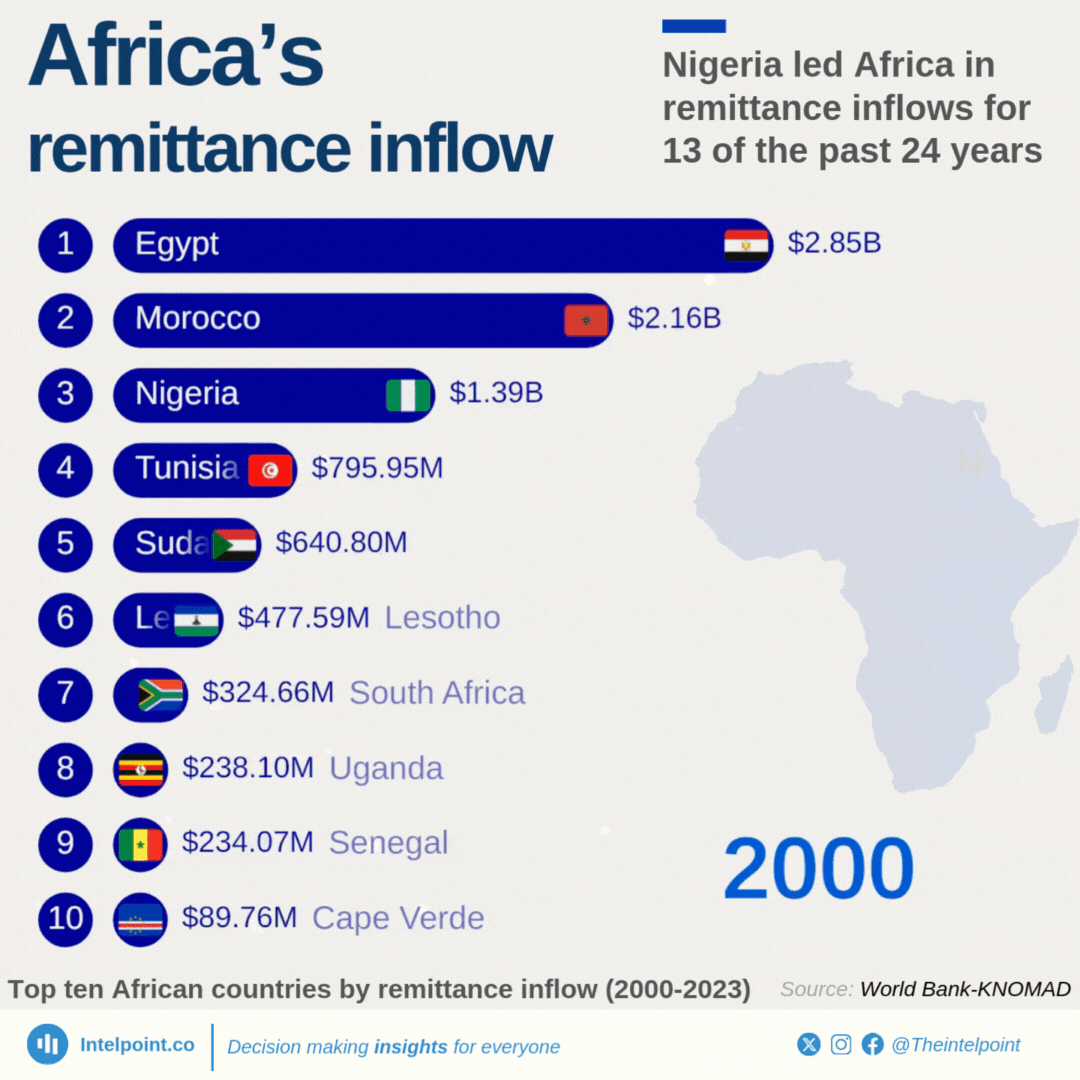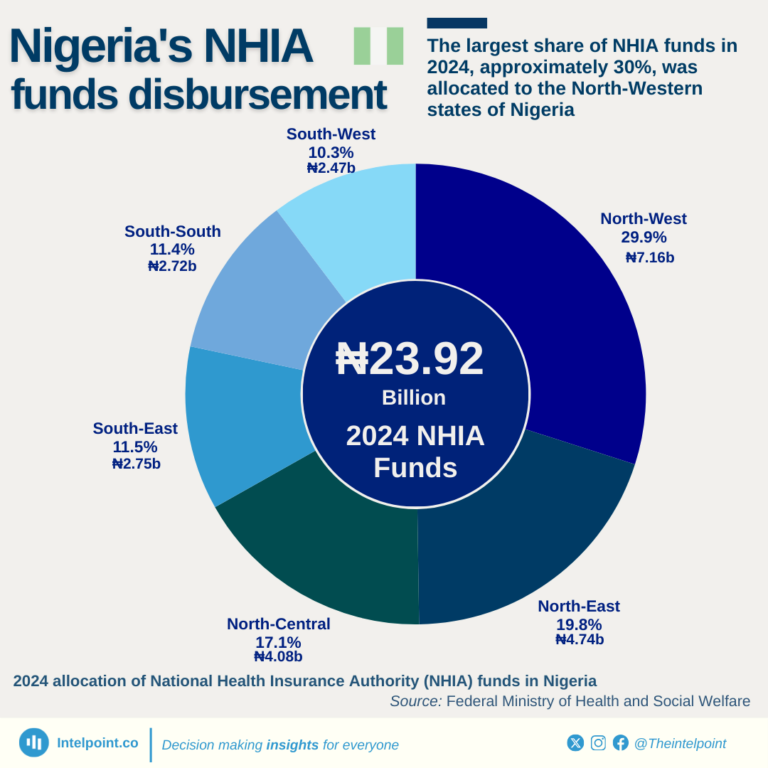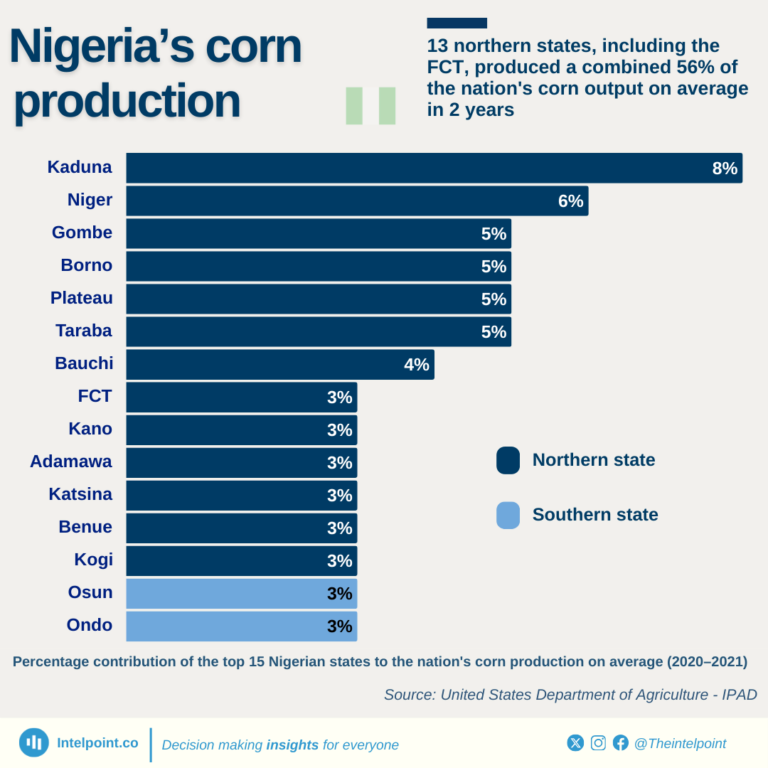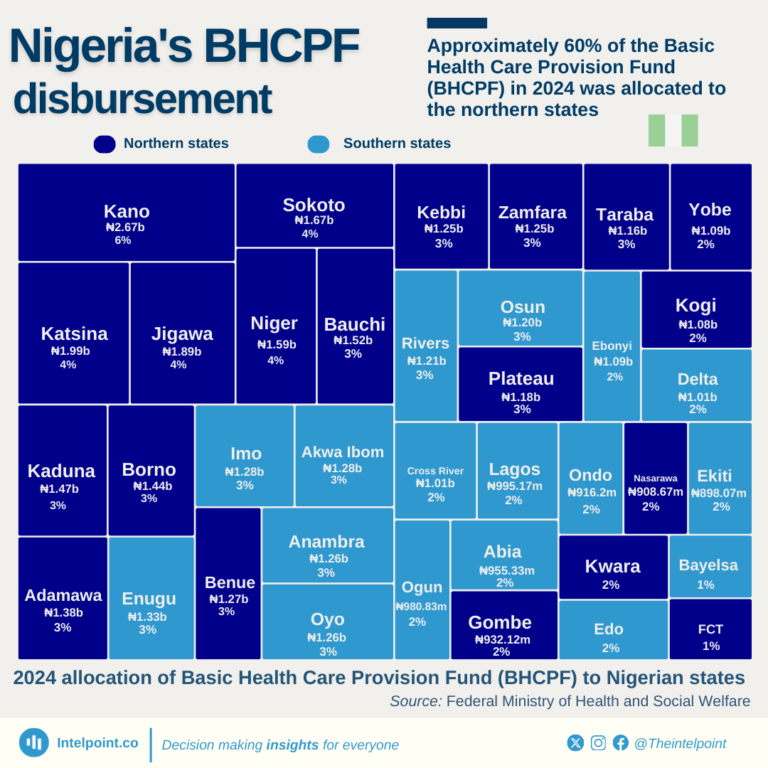
Mobile App transfers increased by 174% to ₦53.21 trillion 20 2021, it also increased by 108% to ₦111.12 trillion in 2022. There was also a charge increase in the volume of funds transfers done on mobile apps. The Central Bank of Nigeria, in its figures, separated Mobile App transfers from those of Mobile Money Operators (MMOs).
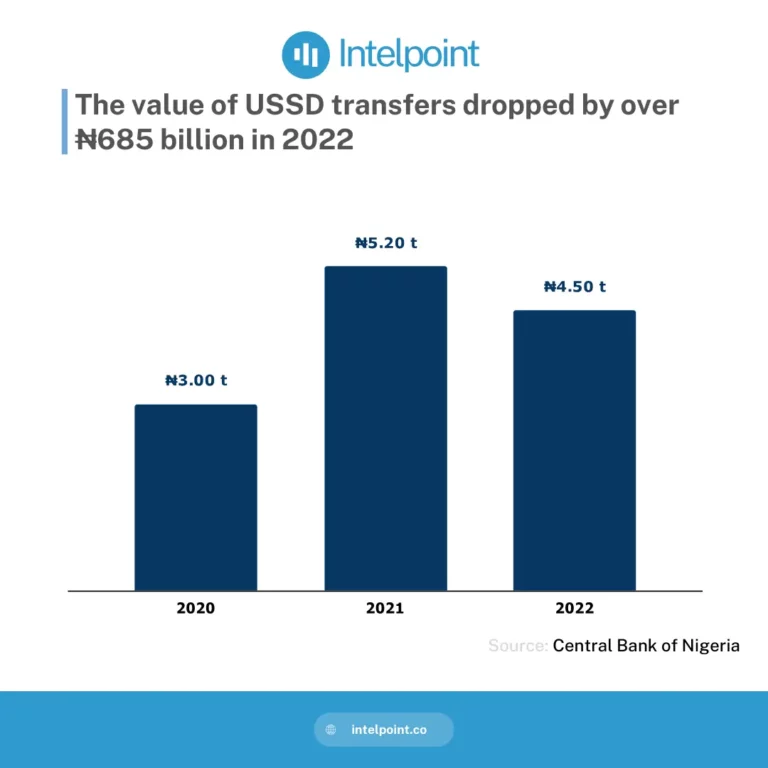
The value of transactions conducted over Unstructured Supplementary Service Data (USSD) in Nigeria in 2021 was ₦5.2 trillion, 73% higher than 2020 figures. The total transaction value dropped by ₦685 billion in 2022, a 13.3% decline. The transaction volume also witnessed a 6% decline.
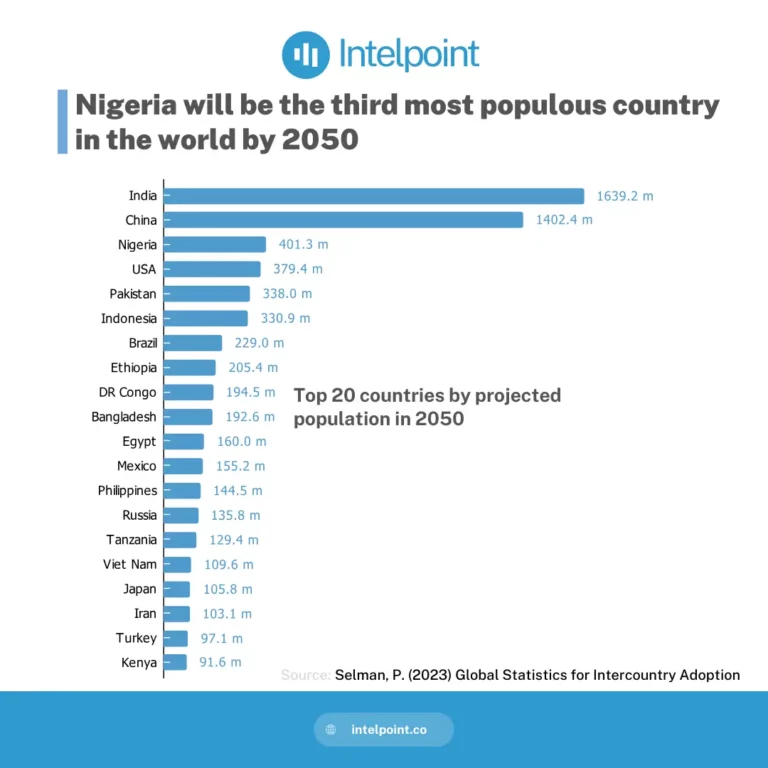
Nigeria was the seventh most populous nation in the world in 2020, with 206.1 million people. Projected to reach a population of 401.3 million by 2050, Nigeria will rank third after India (1st) and China (2nd). According to Institut national d'études démographiques' projections, Nigeria, Ethiopia, DR Congo, Egypt, Tanzania, and Kenya will be among the world’s top 20 most populous countries by 2050.
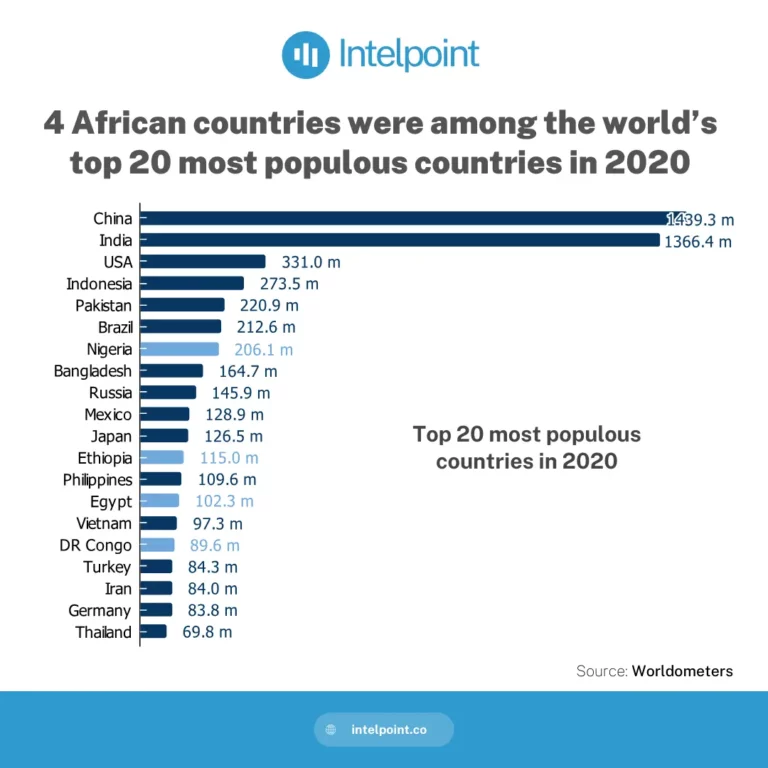
Nigeria was the seventh most populous nation in the world in 2020, with 206.1 million people. Projected to reach a population of 401.3 million by 2050, Nigeria will rank third after India (1st) and China (2nd). According to Institut national d'études démographiques' projections, Nigeria, Ethiopia, DR Congo, Egypt, Tanzania, and Kenya will be among the world’s top 20 most populous countries by 2050.
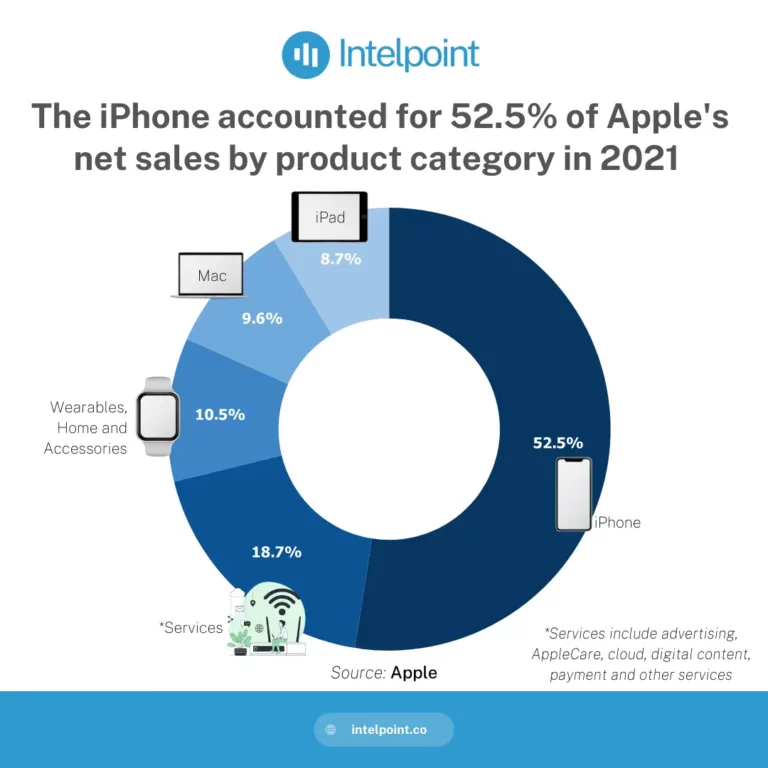
Since launching in 2007, the iPhone has been a key part of Apple's revenue stream. Apple's 2021 annual report shows that net sales for iPhones accounted for over half of the company's total net sales for the year.
